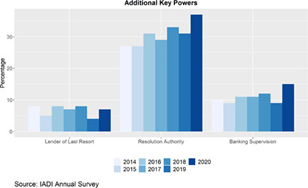In the context of globalization and international integration, our country’s financial and banking system has strongly developed with numerous domestic, foreign banks, micro finance institutions, etc. Meanwhile, banking products and services have become toocomplex for consumers to update and understand, even those who are financially literate. Besides official banking sector, shadow banking activities appeared and have so far ruined depositors’ confidence.
The level of financial literacy in Vietnam is low
According to the World Bank (WB, 2014), Vietnam is one of the 25 countries with 75 percent of population having no access to official financial and banking services and suffering fromfinancialilliteracy. The S&P Global Finlit survey (2014) conducted in 140 countries showed that Vietnam was among the countries which have the lowest percentage of adults with financial literacy, lower than that of Thailand (27%), Indonesia (32%), Malaysia (36%), Myanmar (52%), Singapore (59%)…
A survey conducted by the State Bank of Vietnam (2015) pointed out that only 51% of respondents have ever heard of and know aboutpersonal loans.
The results reflect limited financial literacy and attentionof a majority of Vietnamese people nowadays. People have savings and investments but lack detailed, proper plansas well as risk management for their investments.Moreover, people living in the rural, remote, mountainous areas are mostly financial illiterate; they even have never thought of expenditure budgetingand savings for their own and their family’s life.
A survey (in 2012 and 2013) conducted on students/pupils from 13 to 18 indicated that just 17.2 percent of the respondents knew how to make savings out of their living expenses, 8.8 percent spent all their money and the remaining did not know what to do with money. Financial education at schools and colleges is rather theoretic and impractical. Training courses on personal finance are often held on small scales which are difficult for low-income households to access. Most people tend to spend their money irrationallywithout budgeting, planning and preparedness for unexpected expenses. At the same time they do not know about the concepts and types of financial products/services provided by banks, financial institutions. Besides depositing and borrowing money, they do not distinguish secured or unsecured loans, different types of insurance.This situation raised concerns given that the Vietnam’s economy has strongly grown with increasingly complicated financial market.
Facing that challenge, the Party and Government in recent years have fervently implemented measures to improve the financial literacy through enhancing the financial inclusion in Vietnam.
Promptly developing a national strategy on financial inclusion
At a recent international conference on “Financial education in the context of financial inclusion in Vietnam”, Dr. Can Van Luc – Chief Economist of the Bank for Investment and Development of Vietnam (BIDV) cum Director of BIDV Training School affirmed that Vietnam had to develop and implement a national strategy on financial inclusion. Accordingly, a sub-strategy on financial literacy should be built by relevant parties such as the State Bank of Vietnam, the Ministry of Finance, the Ministry of Education and Training, etc., The Government and the private sector should cooperate to set up steering and coordinating frameworks for fundamental components of the strategic framework on financial inclusion such as: financial products/ services designs; financial products/ services distribution channels; financial infrastructure construction on the background of information technology, legal framework…
Moreover, Mr Alwaleed Alatabani – Lead Financial Sector Specialist at the World Bank in Vietnam also highlighted the importance of developing financial behavior as a part of financial literacy. He supposed that financial education programs should be flexibly designed for specific beneficiaries, such as embedding financial education in the school’s curriculum including mathematics, social science, civil education, etc., for students and in topics such as crops and weather insurance for farmers. MrAlatabani also made an example of creative initiative in the Republic of South Africa, where financial education movies were developed to help to change people’s financial behaviors.
At the G20 Summit in Argentina in March 2018 and APEC meeting in 2017, representatives from different countries agreed that financial education is a key factor to implement financial inclusion policy. Financial education would help to improve financial benefits (OECD, 2005), empower people to make financial decisions, then ease the burden of state budget for social issues.
“Public awareness should be improved”– or so the saying goes among people. However, substantively, Vietnam needs regular surveys on financial literacy to perform impact evaluation of financial education programs, then define gaps to fill. Dr. Can Van Luc stressed the importance to differentiate financial education from commercial consultancy, and that financial education is a part of good governance practices of financial institutions which encourages transparency and accountability.
Vietnam has been accelerating the restructuring of credit institutions, finalizing the legal framework toward international standards. Hence each person should be equipped withadequate understanding, knowledge, skills, attitudes, behavior to make sound financial decisions. At national level, improving financial literacy would help Vietnam to enhance financial services quality and contribute to the sustainable development of the national economy.



























